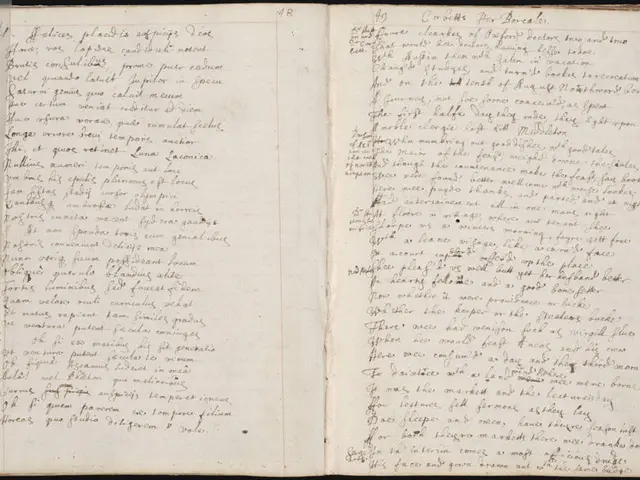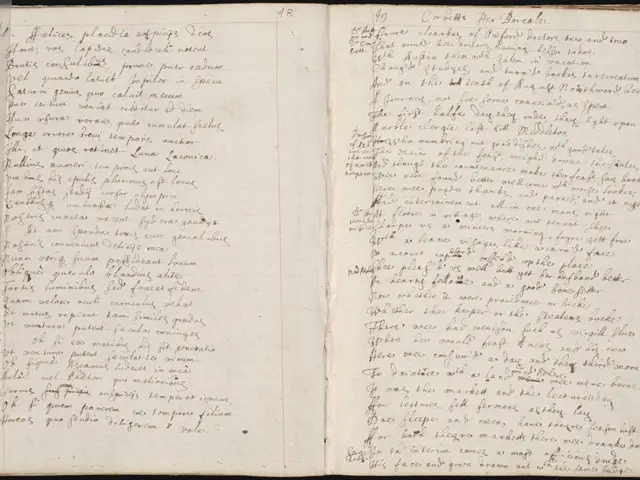Tension erupts over unequal distribution of resources and power among social classes
Examining Snobbery in New German Literature: A Closer Look at Jovana Reisinger's 'Pleasure'
In the contemporary German-language pop literature scene, snobbery is emerging as a notable thematic and stylistic device, particularly in works like Jovana Reisinger's latest novel, 'Pleasure.' This exploration of snobbery underscores cultural and social dynamics, serving to critique and challenge established norms.
The lit.cologne pop show, a platform highlighting the playfulness of the new German-language pop literature, positions Reisinger's novel as a significant contribution to this movement.
In 'Pleasure,' snobbery takes on a new connotation, no longer simply a sign of elitism, but rather a tool for class struggle. Born and raised in social housing, Reisinger advocates for indulgence, glamour, and devotion as means of denying the beautiful surfaces to the privileged few. This perspective is far from the snobbish detachment of the bored boarding school students recurrent in literature.
Laura Leupis's "Alphabet of Sexualized Violence," a March Verlag publication, is another instance where snobbery is used to frame a harrowing narrative/topic. Structured as an alphabet, the book offers a unique, therapeutic approach to addressing sexual assault's traumatic impact.
Where Leupis employs snobbery as a critique on the societal impact of trauma, Selma Kay Matter's novel "Muskels aus Plastik" utilizes it to explore the consequences of long COVID. The non-binary narrator, Kay, finds solace and connection with another trans* individual, Ilay, in the shared experience of disability, providing a fresh perspective on queer experiences surrounding the pandemic.
In assembling these works under the umbrella of 'pop literature,' there is a renewed playfulness and an embracement of fiction and form that echoes the movement's origins in the early 1970s. This new wave of German-language literature is revitalizing the genre, creating a space for exploring contemporary cultural and social issues in innovative ways.
By employing snobbery as a thematic device, pop literature has the potential to challenge traditional literary hierarchies, probe the tensions between mass appeal and artistic value, and delve into the complexities of contemporary identity formation. This usage positions the genre as a valuable cultural barometer, critically engaging with societal issues and reflecting the concerns of its readers.
- In contrast to the traditional detachment of snobbish characters in literature, Jovana Reisinger's 'Pleasure' uses snobbery as a means of denial, offering indulgence, glamour, and devotion to the masses rather than the privileged few.
- Laura Leupis's 'Alphabet of Sexualized Violence' also employs snobbery, using it as a tool to critique the societal impact of trauma and to provide a unique therapeutic approach to addressing the traumatic impact of sexual assault.
- Similarly, Selma Kay Matter's novel 'Muskels aus Plastik' uses snobbery to explore the consequences of long COVID, with the non-binary narrator finding solace and connection with another trans* individual in the shared experience of disability, thereby offering a fresh perspective on queer experiences surrounding the pandemic.








